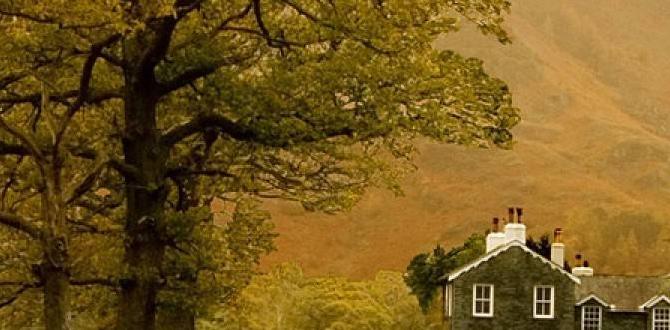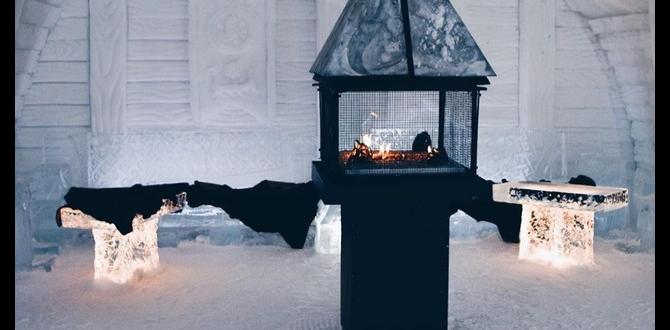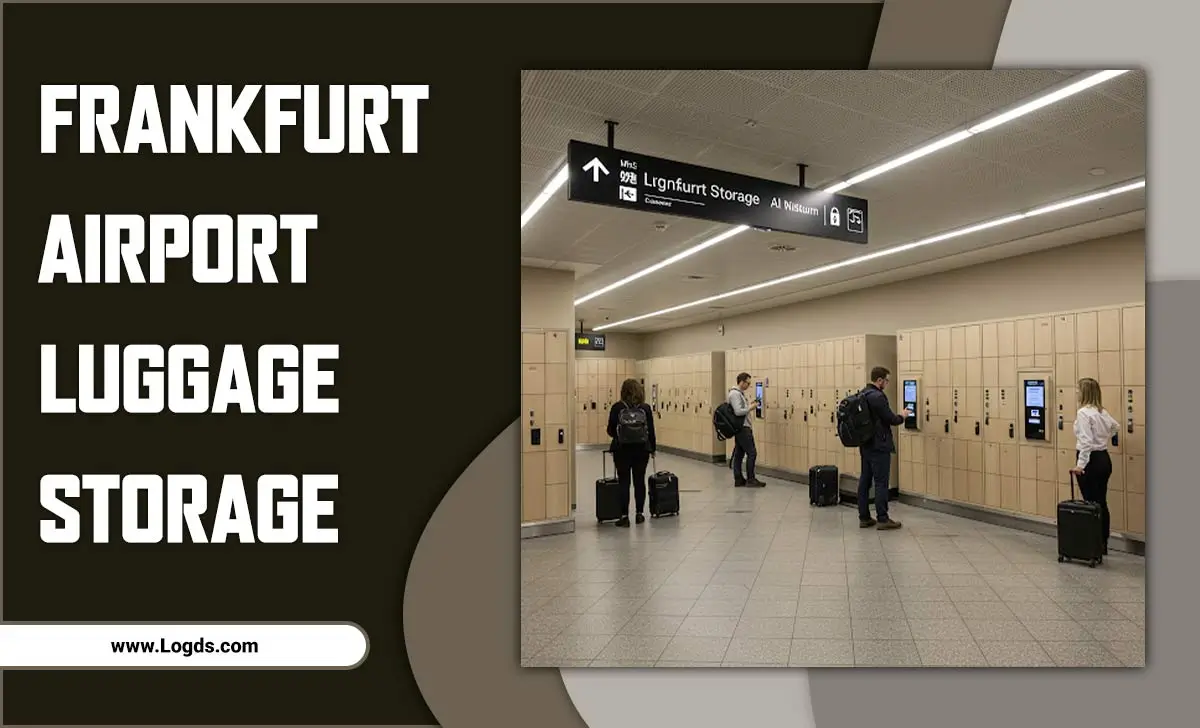Discover Algeria’s hidden gems with essential offbeat day trips for an unforgettable adventure beyond the usual tourist trails.
Algeria is a land of incredible diversity, often overlooked by travelers. You might be dreaming of a unique getaway but feel unsure where to start. Planning a trip to a less-traveled destination can feel a bit overwhelming. That’s where I come in! We’ll explore some truly special day trip ideas in Algeria, making your planning simple and exciting. Forget the crowds and get ready for authentic experiences that will stay with you long after you return home. This guide will show you how to uncover Algeria’s secrets, one amazing day trip at a time.
Algeria Offbeat Day Trips: Unveiling Essential Adventures
Algeria, a vast and captivating country in North Africa, offers a wealth of experiences for the intrepid traveler. While its major cities and historical sites certainly deserve attention, the true magic often lies just beyond the beaten path. These offbeat day trips allow you to connect with Algeria’s diverse landscapes, rich history, and warm culture in a more intimate and authentic way. For those seeking an adventure that goes beyond the typical tourist itinerary, these essential journeys promise unique memories and a deeper understanding of this incredible nation.
Why Choose Offbeat Day Trips in Algeria?
Stepping away from the well-trodden paths in Algeria unlocks a different kind of travel. It’s about finding those quiet corners, witnessing daily life unfold, and experiencing raw, unfiltered beauty. These day trips offer a chance to:
Escape the Crowds: Experience popular regions or natural wonders with a sense of serenity.
Discover Hidden Treasures: Uncover historical ruins, natural landscapes, or cultural practices not widely publicized.
Connect with Locals: Engage with communities and experience authentic Algerian hospitality.
Immerse in Nature: Explore diverse ecosystems, from coastal vistas to Saharan fringes.
Gain Unique Perspectives: Understand Algeria’s history and culture through its lesser-known sites and stories.
Your Essential Toolkit for Offbeat Adventures
Preparing for any trip, especially one off the beaten path, involves a little thoughtful packing. While Algeria’s climate can vary significantly, especially between the coast and the Sahara, having a few essentials will ensure your comfort and safety.
Comfortable Footwear: Essential for exploring ancient ruins, hiking, or walking through diverse terrain. Sturdy walking shoes or hiking boots are highly recommended.
Sun Protection: A wide-brimmed hat, sunglasses, and high SPF sunscreen are non-negotiable, particularly for desert or coastal excursions.
Lightweight, Breathable Clothing: Layers are key. Think loose-fitting cotton or linen shirts and trousers that protect you from the sun while keeping you cool.
Reusable Water Bottle: Staying hydrated is crucial. Carrying your own bottle is eco-friendly and ensures you have water as needed.
Small Backpack: Perfect for carrying your daily essentials – water, snacks, camera, sunscreen, and a light jacket.
Basic First-Aid Kit: Include essentials like bandages, antiseptic wipes, pain relievers, and any personal medications.
Camera: To capture the incredible sights you’ll encounter.
Portable Power Bank: For keeping your devices charged on the go, especially if you’re out all day.
Cash (Algerian Dinars): While some places might accept cards, smaller vendors or rural areas will primarily deal in cash.
For travelers managing personal health needs, or those traveling with children requiring extra care, focusing on comfort and discretion is paramount. Consider packing discreetly managed personal care items. For adults, products like: adult diapers can provide confidence and security, allowing for longer excursions without concern. Similarly, for parents, having access to reliable child diapers and related supplies ensures children remain comfortable, which makes for a more relaxed day out for the entire family. Planning for these needs is just another part of ensuring a smooth, stress-free travel experience.
Algeria Offbeat Day Trip Ideas: Essential Adventures
Let’s dive into some of the most rewarding offbeat day trips you can embark on in Algeria. These suggestions are designed to offer a blend of natural beauty, historical depth, and cultural immersion.
1. Exploring the Roman Ruins of Djémila (Ancient Cuicul)
While Timgad is more famous, Djémila offers a remarkably well-preserved Roman-colony site nestled in a picturesque mountain landscape. It’s a UNESCO World Heritage site, and its setting is simply breathtaking – a stark contrast to the arid ruins found elsewhere.
What to Expect:
The remains of a forum, temples, basilicas, arches, and terraced houses.
Incredible panoramic views due to its mountainous location.
A small museum displaying mosaics and artifacts found on site.
A sense of tranquility, allowing you to imagine life in Roman times without feeling rushed.
Getting There: Djémila is approximately a 2-3 hour drive from the coastal city of Sétif. Hiring a car and driver from Sétif or Constantine is the most practical way to reach it for a day trip.
Why it’s Offbeat: Often overshadowed by Timgad or Djemila’s more frequently visited counterparts, Djémila retains a sense of discovery. Its remote mountain setting adds to its charm and offers a different perspective on Roman presence in North Africa.
Traveler Tip: Wear sturdy shoes as the terrain can be uneven. Bring plenty of water and sun protection. Early morning visits are ideal to avoid the heat and enjoy the best light forPhotography.
2. The Desert Oasis of El Oued (The “Oasis of a Thousand Palms”)
Known for its distinctive Saharan architecture with domed roofs designed to keep interiors cool, El Oued is a gateway to the Sahara. A day trip here offers a glimpse into a unique desert lifestyle, far from the more developed tourist hubs.
What to Expect:
Endless palm groves creating a lush contrast with the surrounding desert.
Distinctive white-domed houses that are characteristic of the region.
The bustling Souk El-Ghazal (Sardine Market), where local life is vibrant.
Opportunities to visit a local hammam (traditional bathhouse) or enjoy traditional mint tea.
A sense of timelessness and the peaceful rhythm of oasis life.
Getting There: El Oued is accessible by domestic flights from Algiers, or by a longer bus or car journey (around 7-9 hours) from major cities like Constantine. For a day trip, flying in and out is recommended, or combining it with an overnight stay in the region.
Why it’s Offbeat: While a significant town, El Oued offers a more authentic desert oasis experience compared to some mass tourism-focused spots. Its unique architecture and deep cultural roots make it a fascinating detour.
Traveler Tip: Engage respectfully with locals. Learning a few basic Arabic phrases can go a long way. Be mindful of local customs regarding dress and photography.
3. The Coastal Charm of El Kala and its National Park
Located in the extreme northeast of Algeria, El Kala is a charming coastal town surrounded by stunning natural beauty, including a national park with lakes, wetlands, and forests – a unique landscape for Algeria.
What to Expect:
The El Kala National Park, a UNESCO Biosphere Reserve, offering opportunities for birdwatching and hiking.
Picturesque lakes like Lac Tonga and Lac Oubeira, offering serene landscapes.
The picturesque fishing port of El Kala, with colorful boats and fresh seafood.
Beautiful, often secluded, beaches.
A relaxed, laid-back atmosphere.
Getting There: El Kala is about a 1.5-2 hour drive from Annaba. It can be reached by car or public transport.
Why it’s Offbeat: This region is far less visited by international tourists than the Algerian coast further west. Its unique ecological diversity and tranquil atmosphere make it a refreshing escape.
Traveler Tip: Consider visiting the Grotte des Pigeons (Pigeon Grotto) near El Kala for a unique geological experience. The best time for birdwatching is during the migration seasons.
4. Discovering the Rusticity of Tipasa’s Mount Chenoua
While the Roman ruins of Tipasa are well-known, the surrounding Mount Chenoua offers a different charm. This area is home to the Berber tribe of the Chenoua, with their own distinct culture, language, and traditional way of life.
What to Expect:
Spectacular coastal views from higher elevations.
Small, traditional Berber villages dotting the mountainside.
Opportunities to see local handicrafts and learn about Berber traditions.
Rugged hiking trails for those who enjoy a walk in nature.
A quieter, more authentic experience away from the main archeological site.
Getting There: Mount Chenoua is adjacent to the ancient city of Tipasa, about an hour’s drive west of Algiers. A combination of hired transport and walking is ideal.
Why it’s Offbeat: Most visitors to Tipasa focus solely on the Roman ruins. Exploring Mount Chenoua allows you to experience the living culture and breathtaking natural landscapes that lie just beyond the historical remnants.
Traveler Tip: Be respectful when visiting villages and interacting with residents. It’s best to go with a local guide who can facilitate introductions and ensure cultural sensitivity.
5. The Kasbah of Constantine & its Surroundings
Constantine itself is a grand city, but delving into its less-explored corners and the surrounding areas can be a rewarding day trip. The Palatium de Mustapha Bey, for instance, offers a glimpse into Ottoman-era opulence away from the more famous bridges.
What to Expect:
The intricate architecture and courtyards of the Palatium de Mustapha Bey.
Strolling through the older, maze-like sections of the Kasbah, discovering hidden squares and local life.
Exploring the dramatic ravine and the Sidi M’cid suspension bridge (the longest in the world at its opening).
The Mellah (old Jewish quarter) offers a glimpse into the city’s diverse history.
Enjoying the local cuisine in traditional restaurants.
Getting There: Constantine is a major city with good transport links, including an airport. Travel within the city can be done by taxi or by walking.
Why it’s Offbeat: While Constantine is a known destination, focusing on its less-advertised Ottoman heritage and deeper Kasbah exploration provides an offbeat angle, revealing layers beyond its famous bridges.
Traveler Tip: Consider visiting a traditional artist’s workshop if you can find one; the region is known for its skilled artisans. Always look up and around in the Kasbah; architectural details abound.
6. The Roman Aqueducts of Pont de l’Icar & Chemtou Caves (Jebel Oust)
While not a single defined “trip,” exploring remnants like the Roman aqueducts near Oued Djer, or indeed venturing towards the Chemtou Marble Quarries (often visited from Tunisia but accessible for a dedicated day trip from western Algeria), offers fascinating historical and geological insights.
What to Expect:
Pont de l’Icar: Impressive remnants of Roman engineering, demonstrating their advanced water management systems. It’s a testament to their presence and ingenuity.
Chemtou: If venturing further, the site of the ancient Roman quarries of Chemtou (Simitthus) are famed for their Numidian marble, a truly historic and visually striking location.
Jebel Oust: In the vicinity, you can find significant Roman remains and stunning natural landscapes.
Getting There: These sites are best accessed with a hired vehicle and a good map or GPS. Pont de l’Icar is roughly east of Algiers. Chemtou is closer to the Tunisian border and requires a substantial day trip from cities like Sétif or even further west driving.
Why it’s Offbeat: These sites are often overlooked in favor of more prominent UNESCO locations or coastal towns. They offer a raw, historical connection and a look at engineering feats that sustained Roman life, often in remote, peaceful settings.
Traveler Tip: Researching the specific locations and accessibility beforehand is key. These are often unfenced, open-air sites, so tread carefully and be prepared for an adventurous exploration. Confirming the status of Chemtou’s accessibility from Algeria is advisable.
Planning Your Offbeat Day Trip: A Practical Checklist
To ensure your offbeat adventure is smooth and enjoyable, here’s a practical checklist.
Pre-Trip Planning:
Define Your Interests: Are you drawn to history, nature, culture, or a mix?
Choose Your Destination: Select one or two offbeat locations that align with your interests and logistical feasibility from your base.
Check Accessibility: Research how to get there (car hire, public transport, local guides). Understand travel times.
Book Accommodation (if needed): While these are day trips, if your chosen spot is far, an overnight stay might make sense.
Inform Someone: Let your hotel or a friend know your itinerary.
Check Weather: Algeria’s climate varies significantly. Pack accordingly.
Learn Basic Phrases: A few words in Arabic or Tamazight can be very helpful and appreciated.
On the Day:
Early Start: Maximize daylight and avoid the midday heat, especially in desert regions.
Stay Hydrated: Carry more water than you think you’ll need.
Snacks: Pack some non-perishable snacks for energy.
Respect Local Culture: Dress modestly, ask for permission before taking photos of people, and be mindful of customs.
Leave No Trace: Take all your litter with you and respect the natural environment.
Improvise and Enjoy: Offbeat travel sometimes involves the unexpected. Embrace it as part of the adventure!
Table: Offbeat Algeria Day Trips at a Glance
Here’s a quick comparison of some of the offbeat day trips mentioned to help you make a choice:
| Destination | Highlights | Best For | Travel Time (from nearest major city) |
| :———————- | :————————————————- | :——————————————— | :———————————— |
| Djémila | Roman ruins, mountain scenery, museum | History buffs, photographers, nature lovers | 2-3 hours (Sétif/Constantine) |
| El Oued | Oasis life, unique architecture, desert vistas | Cultural immersion, photographers, desert fans | 7-9 hours (bus/car) or flight (Algiers) |
| El Kala National Park | Wetlands, birdwatching, coastal scenery, beaches | Nature lovers, birdwatchers, relaxation | 1.5-2 hours (Annaba) |
| Mount Chenoua (Tipasa) | Berber villages, coastal views, hiking | Cultural explorers, hikers, those seeking quiet | 1 hour (Algiers to Tipasa) |
| Constantine Kasbah | Ottoman architecture, ancient city exploration | History enthusiasts, urban explorers | Within the city |
| Roman Aqueducts/Caves | Roman engineering, geological sites, remote history | Adventurers, history buffs, explorers | Varies (requires dedicated planning) |
Frequently Asked Questions About Algeria Offbeat Day Trips
Q1: Is Algeria safe for solo travelers on offbeat day trips?
A1: Algeria is generally considered safe, but like any destination, it’s wise to exercise caution. For offbeat trips, especially to less-trafficked areas, going with a local guide or in a group is advisable for added safety and richer experience. Always inform someone of your plans.
Q2: What is the best time of year for offbeat day trips in Algeria?
A2: Spring (March-May) and Autumn (September-November) offer the most pleasant weather across Algeria. Coastal areas are enjoyable year-round, but summer can be very hot. Desert regions are best visited in spring and autumn; winters can be surprisingly cold here.
Q3: Do I need a visa for Algeria?
A3: Visa requirements vary by nationality. Many countries require a visa obtained in advance from an Algerian embassy or consulate. It’s crucial to check the latest regulations for your specific nationality well before planning your trip.
Q4: What currency is used in Algeria?
A4: The currency is the Algerian Dinar (DZD). Credit cards are accepted in larger hotels and some shops in major cities, but for offbeat day trips and smaller towns, cash is essential. Exchange currency at official exchange offices or banks.
Q5: How can I arrange transportation for offbeat day trips?
A5: Hiring a car with a driver is often the most convenient and flexible option for offbeat destinations. Taxis can be hired for shorter trips or within cities. Public transport (buses and trains) connects major cities but may not reach more remote sites directly. For certain areas, a local guide can arrange transport.
Q6: What should I wear on an offbeat day trip in Algeria?
A6: Modesty is key. For both men and women, covering shoulders and knees is recommended, especially when visiting towns or interacting with locals. Lightweight, breathable fabrics are best. For women, a headscarf can be useful for visiting religious sites or for sun protection. Comfortable walking shoes are a must.
Q7: Can I find food and water easily on these day trips?
A7: In larger towns or near popular sites, you’ll find local





